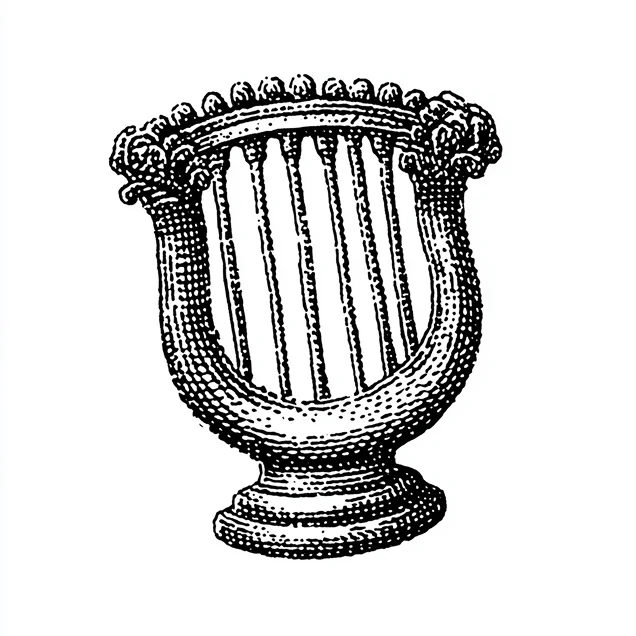The tax dilemma every investor faces
You want to sell an investment, but there's a problem: you'll owe capital gains taxes. Maybe you want to rebalance your portfolio, exit a concentrated position, or move to a better investment. But that tax bill is making you hesitate.
Here's the thing: capital gains taxes aren't always bad. They're actually a sign that your investments have grown, which is what you wanted in the first place. The question isn't whether you should avoid capital gains forever: it's whether paying them today makes sense for your long-term wealth.
Before you make any move in a taxable account, you need to understand what those taxes will cost you and whether the benefit justifies the expense.
What are capital gains taxes exactly?
Capital gains are the profit you make when you sell an investment for more than you paid. The tax you owe depends on two key factors: how long you held the investment and your income level.
Short-term capital gains (held less than 1 year):
- Taxed as ordinary income
- Can be as high as 37% for high earners, plus state taxes
- Much more expensive than long-term rates
Long-term capital gains (held 1 year or more):
- Taxed at preferential rates: 0%, 15%, or 20%
- Most high earners pay 15% federal, plus state taxes
- Significantly better than short-term treatment
The calculation is simple: Capital gain = Sale price - Cost basis (what you originally paid)
How to estimate your capital gains tax bill
Before you sell anything, run this quick calculation:
Step 1: Find your cost basis This is what you originally paid for the investment. Your brokerage statement should show this.
Step 2: Calculate the gain Current value - Cost basis = Capital gain
Step 3: Determine your tax rate
- Short-term: Your ordinary income tax rate (potentially 37%+ with state taxes)
- Long-term: Likely 15% federal + your state rate (varies by state)
Step 4: Calculate the tax Capital gain × Tax rate = Tax owed
When it's worth paying capital gains taxes
You're reducing unnecessary concentration risk If one stock or investment represents more than 10-15% of your portfolio, paying some tax to diversify often makes sense.
The current investment no longer fits your strategy Maybe you bought individual stocks but now want index funds, or you're moving from growth to income investments.
You're rebalancing significantly Moving from 90% stocks to a 60/40 portfolio might be worth the tax cost to better match your risk tolerance.
You're in a low-income year If your income is temporarily lower, you might qualify for 0% long-term capital gains rates or be in a lower bracket.
You're exiting high-fee investments Paying capital gains to move from an expensive actively managed fund to low-cost ETFs can pay for itself over time.
When to think twice about triggering gains
You're close to the one-year holding period If you're 11 months into holding an investment, waiting one more month could cut your tax rate dramatically.
You're making emotional decisions Don't pay taxes just because you're frustrated with short-term performance. Markets are volatile.
You have no clear plan for the proceeds If you're selling just to "do something" without a better investment in mind, the taxes probably aren't justified.
You'd push yourself into a higher bracket Large realized gains late in the year could bump you into the next tax bracket or trigger additional Medicare taxes.
The investment thesis hasn't changed If you still believe in the long-term prospects, short-term volatility might not justify the tax cost.
Strategies to minimize capital gains impact
Tax-loss harvesting Sell losing positions to offset gains. Losses can cancel out gains dollar-for-dollar up to $3,000 of ordinary income per year. Unused losses carry forward indefinitely until fully used.
Harvest gains strategically In low-income years, you might qualify for 0% long-term capital gains rates.
Spread gains across years Instead of selling everything at once, phase out positions over multiple years to manage your tax bracket.
Check holding periods carefully If you're close to the one-year mark, waiting could save significant taxes.
Consider gifting appreciated assets If you're charitably inclined, donating appreciated investments avoids capital gains entirely.
Quick Answers: Capital gains questions
"Should I wait until the one-year mark to sell?" If you're close and still believe in the investment, often yes. The tax savings can be substantial.
"Can I avoid capital gains by moving to a different brokerage?" No. Moving investments to a different account doesn't reset your cost basis or holding period.
"What if I need the money but don't want to pay taxes?" Consider borrowing against your portfolio instead of selling if you are suitable and this feature is offered by your brokerage, but be aware of the risks.
"Do I pay capital gains in retirement accounts?" No. IRAs and 401(k)s don't trigger capital gains when you buy and sell inside the account.
Can Titan help with capital gains planning?
Yes. If you're a Titan client, we can:
- Estimate the tax impact of any potential sales before you make them
- Coordinate tax-loss harvesting to offset gains where possible
- Help you time sales strategically to minimize your overall tax burden
- Plan multi-year strategies to spread gains across tax years when appropriate
The goal is making investment decisions based on the full picture—including taxes—not letting tax concerns override good investment judgment.
Want help navigating capital gains decisions?
Talk to a Titan advisor to get personalized guidance on when paying capital gains taxes makes sense for your situation.
About Titan
Titan is a modern Registered Investment Advisor (RIA) helping high-earning professionals navigate complex money decisions. With a dedicated advisor and access to proprietary strategies and alternative investment options, we're your go-to wealth team for everything from RSUs to retirement. Learn more at www.titan.com.







